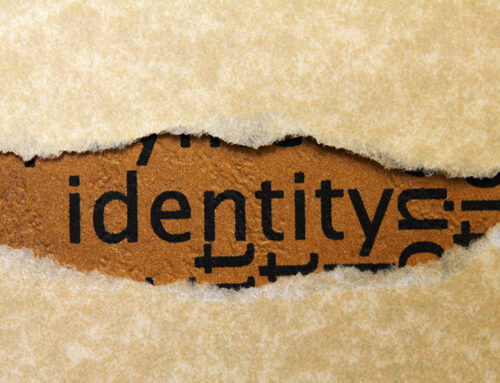
What do we do with sin? How do we treat the sinner? We might try to stay away from people who would defile us, or we might try to blend in—neither ditch is the road we are called to travel.
God’s heart toward sin and the sinner is demonstrated in John 8:1-11. Would you please take a few moments to read this passage?
 When Jesus was confronted by the religious leaders over what to do with the woman caught in adultery, He could have accused her. Jesus also could have demanded that the man be brought forward (see Leviticus 20:10). However, women were lower than men on the social ladder and were accused more easily. The objective of the teachers of the law and the Pharisees was not to take a stand against sin as much as it was to trap Jesus. Isn’t it fascinating how selective we can be in executing justice when we try to prove a point?
When Jesus was confronted by the religious leaders over what to do with the woman caught in adultery, He could have accused her. Jesus also could have demanded that the man be brought forward (see Leviticus 20:10). However, women were lower than men on the social ladder and were accused more easily. The objective of the teachers of the law and the Pharisees was not to take a stand against sin as much as it was to trap Jesus. Isn’t it fascinating how selective we can be in executing justice when we try to prove a point?
Did you know that “Satan” means “Accuser”? Satan finds great pleasure in pointing out the sins and shortfalls of people. We find ourselves in fellowship with evil and darkness when we stoop to such forms of pleasure.
Someone has said, “You can’t make your own house look better by burning down your neighbour’s house.” When was the last time you caught yourself accusing someone and calling for what they deserve?
 Jesus could have justified her actions. He could have interviewed her in front of them and through the latest counselling techniques explained why she committed adultery. Perhaps she had been sexually abused when she was growing up. Maybe she had a cold, distant relationship with her father, resulting in insecurities that drove her to find love in the arms of a man who was not her husband.
Jesus could have justified her actions. He could have interviewed her in front of them and through the latest counselling techniques explained why she committed adultery. Perhaps she had been sexually abused when she was growing up. Maybe she had a cold, distant relationship with her father, resulting in insecurities that drove her to find love in the arms of a man who was not her husband.
In this passage, Jesus does not downplay the sin of adultery. He in no way justifies what this woman did. While recognizing the severity and damage of sin, He puts these accusers in their place by reminding them of their own sin. Jesus also establishes the fact that He alone is worthy of judging sin. He waives this right in this particular situation with the statement, “Neither do I condemn you.” This would have left the religious leaders furious, but speechless.
When was the last time you caught yourself excusing your actions by showing up late for an appointment, disobeying traffic laws, losing your temper, or fudging the numbers on your income tax return?
 When Jesus was confronted by the religious leaders over what to do with this woman, He gave her a fresh start!
When Jesus was confronted by the religious leaders over what to do with this woman, He gave her a fresh start!
The Bible certainly commends having high moral standards and purity. The call not to judge or slander another does not mean that we should lower our standards or throw restraint to the wind. The call of Christ is a call to fresh starts or new beginnings.
Jesus adds correction (without condemnation) saying, “Go now and leave your life of sin.” With the example of Jesus, and acknowledging that He alone is the Judge, we call people to a fresh start—a clean slate marked by forgiveness and restoration.
Jesus walked the line of holiness and grace so perfectly. This balance is summed up so well in His response to this woman in John chapter 8. Jesus demonstrated His compassion by reaching out to her, refusing to condemn her in the same way as the self-righteous legalists that overlooked their own sin. He also called her to leave the life of sin and to walk in the new life that is ushered in by forgiveness.
We are neither to condemn people who are living in sin, nor to condone the sin in which they indulge. With Jesus, we are called to echo His powerful, life-changing words, “Neither do I condemn you. Go now and leave your life of sin.”
There is a lack of conviction for sin in the church today. When we downplay sin, we downplay the grace of God. However, when we recognize the terrible bondage and consequences of sin, we position ourselves to recognize and embrace the power of God’s salvation through Jesus Christ. I am afraid that the North American church has grown powerless and anemic as we fail to recognize sin for what it is—offensive to God. We also misrepresent the heart of our Heavenly Father and of His Son, Jesus Christ, when we seek to justify ourselves and give other people what they deserve.
 God grades on the cross, not the curve. Here is the best mathematical equation I have ever seen: 1 cross + 3 nails = 4 given.
God grades on the cross, not the curve. Here is the best mathematical equation I have ever seen: 1 cross + 3 nails = 4 given.
Are our relationships marked by judgment or forgiveness? Do we tolerate only people that we find comfortable?
Come face to face with your sin and your Saviour for a new beginning.

Allan Pole
CESLM President
al@eslcooperative.ca





























































